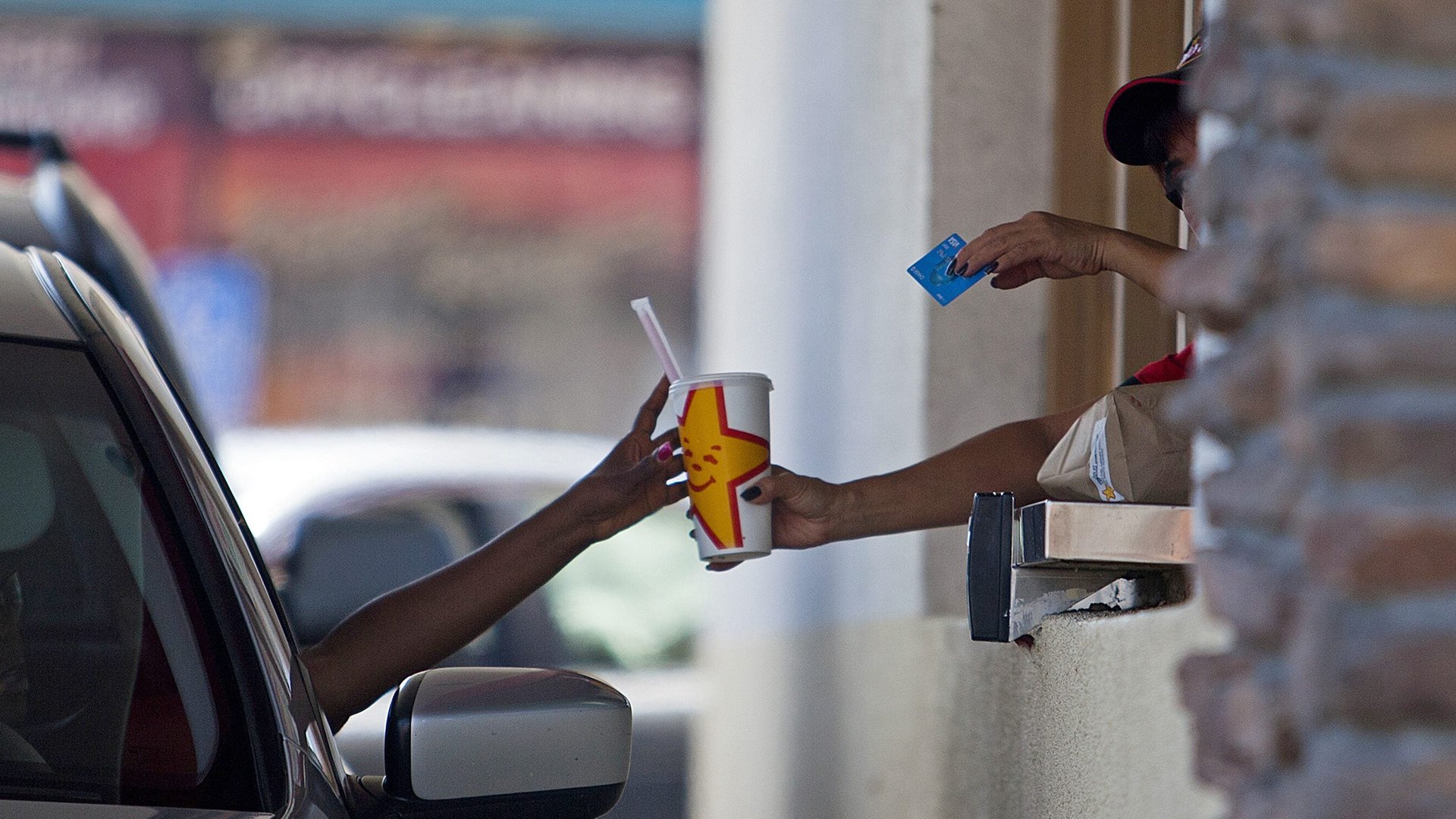Donald Trump’s new labor secretary doesn’t even understand the industry he works in
Donald Trump’s pick for labor secretary is named Andy Puzder. But you can call him Chicken Little.


Donald Trump’s pick for labor secretary is named Andy Puzder. But you can call him Chicken Little.
A “restaurant recession” is sweeping America, Puzder prophecies, as consumers are forced to spend on Obamacare costs instead of on dining out. And that recession, he says, is spreading.
“The struggling restaurant industry is the canary in the coal mine for the Affordable Care Act’s impact on the broader economy,” wrote Puzder in the Wall Street Journal in October, citing investment bank and marketing research firms.
He should know. As CEO of CKE Restaurants, Puzder oversees more than a few such frail songbirds. These include Carl’s Jr., famed for its ads featuring bikini-clad burger-loving models, and Hardee’s, home of the half-pound Budweiser beer-cheese-bacon Thickburger. (And truly, laying off these 1,000-calorie bad boys probably would shrink the relative value of your health insurance.)
Puzder is right that the leap in Obamacare premiums this year is a big blow to household expenses in many states. But while growth in restaurant and bar spending seems to have slowed slightly, it’s still increasing at a much faster pace than in the previous decade.
In fact, both restaurant spending and employment have risen sharply since Obamacare’s major provisions took effect in January 2014, notes Dean Baker, founder of the Center for Economic and Policy Research. ”Clearly Mr. Puzder is badly confused about business conditions in the restaurant sector,” Baker wrote in a blog post.
Fortunately, Puzder’s misconceptions about consumer dining won’t factor in when he takes over the labor department—the main thrust of the gig is protecting America’s most vulnerable workers. As Trump said in his announcement, “Andy will fight to make American workers safer and more prosperous by enforcing fair occupational safety standards and ensuring workers receive the benefits they deserve.”
Not among those benefits: a higher federal minimum wage. Like Trump, Puzder opposes a proposed increase to $10.10 from $7.25, on the grounds that it will force businesses to cut staff.
Layoffs are exactly what economic models say will happen if you hike the minimum wage, but things play out differently in reality. “Research suggests that a minimum wage set as high as $12 an hour will do more good than harm for low-wage workers,” Alan Kreuger, a preeminent labor economist, noted last year. (Hiking it to $15, though, would risk “unintended consequences,” he noted.)
Even if the minimum wage did increase, it would still fall to Puzder, as labor secretary, to decide the rigor with which it’s enforced. Which makes his “restaurant recession” fretting a bit more worrisome: Puzder seems more than willing to disregard data that contradict his narrative.